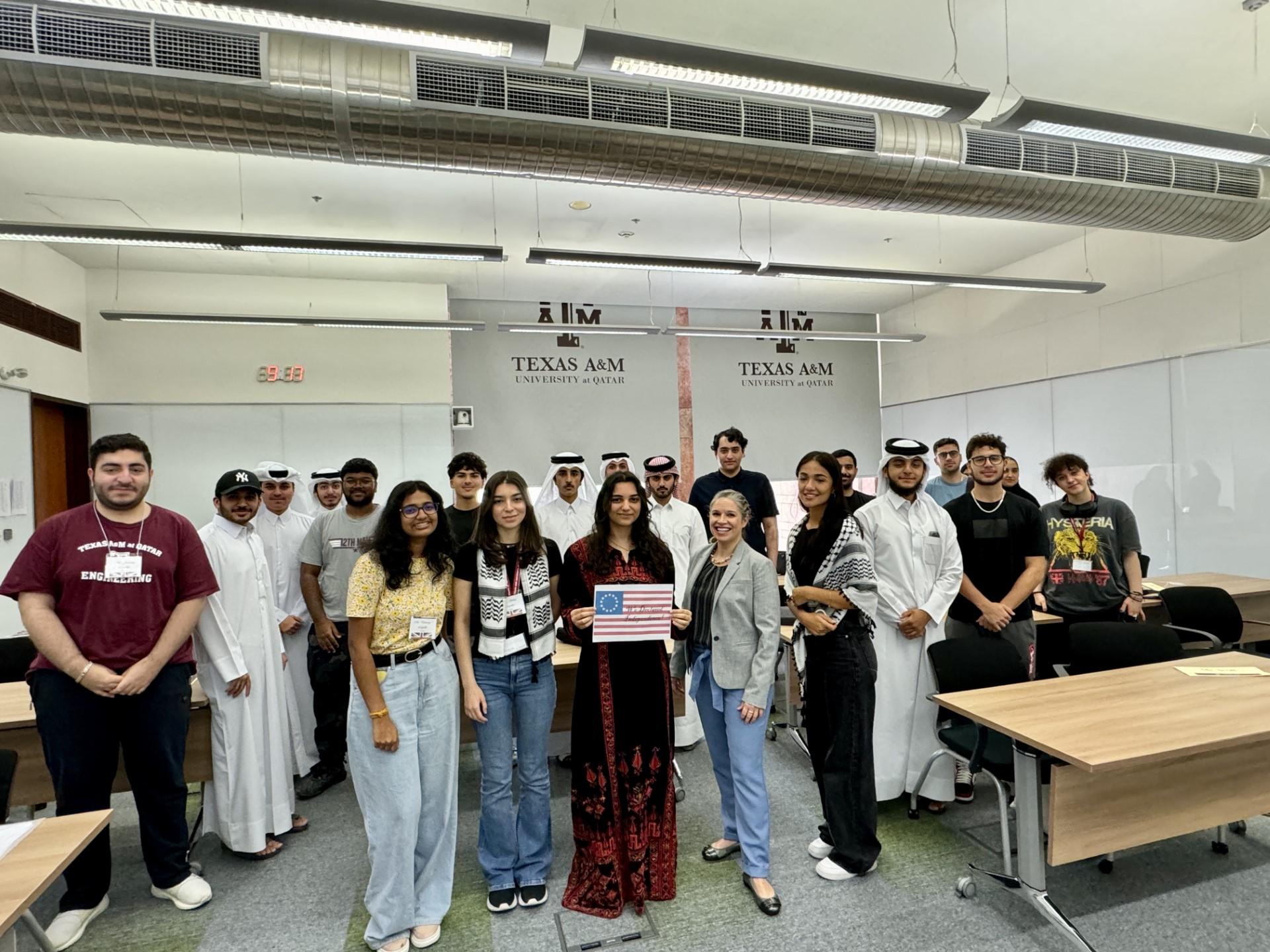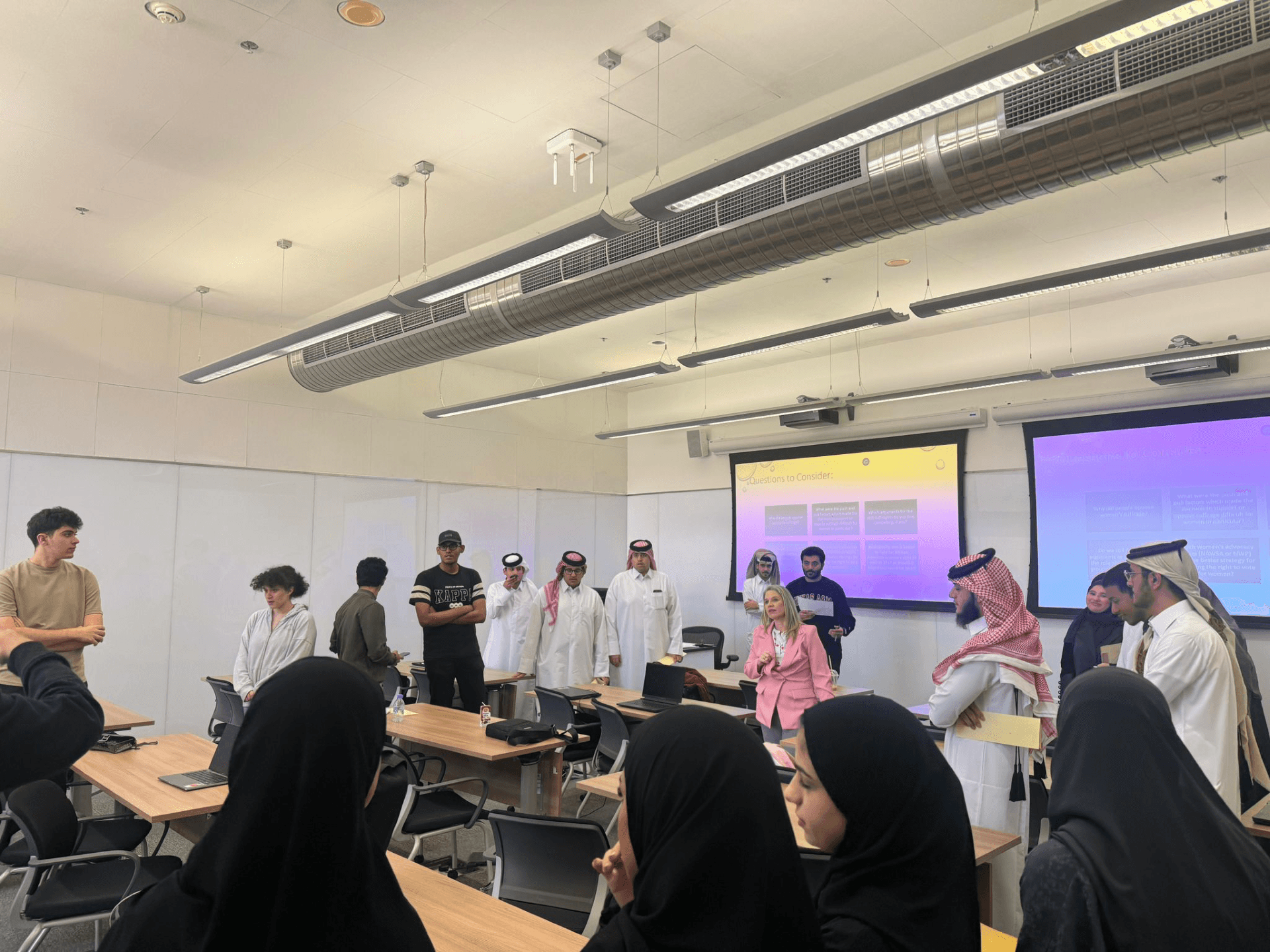Texas A&M is shutting down its Qatar campus amid charges of a disinformation campaign
With no public debate and little warning, this month, the Texas A&M University System Board of Regents announced its decision to close its Qatar campus by 2028, citing “the heightened instability in the Middle East”—referring to the war between Israel and Hamas, the repercussions of which have spread beyond Gaza.
Faculty and students there were largely caught off guard and have expressed concerns and confusion over how shutting down this 20-year-old campus could be done with no public input and so swiftly.
That includes Brittany Bounds, who moved to Doha in August 2019 to become a professor of history at Texas A&M University at Qatar (TAMU).
“It surpassed all my expectations,” she said. “The Middle East doesn’t really have a great reputation, and a lot of people have this misperception that we’re living in a war zone. This place is beautiful.”
Bounds teaches US history to an international cohort of engineering students, including many Qataris. At least half of her students are women. She said her classes are filled with probing conversations, and the campus size — over 900 students, faculty and staff — is just right for forming lasting relationships.

TAMUis part of the Texas A&M University System overseen by a Board of Regents appointed by the governor of Texas. Bounds knew they’d be taking up the Qatar campus at the board’s meeting late last week.
“None of us were really worried,” she recalled, “because we knew that with the optics of everything that’s happening here in the region, we knew that they had to discuss this.”
In Qatar, Bounds was fast asleep while the board convened their meeting nine time zones away in Texas. During the board’s discussion, Regent Michael Hernandez III said, “Chairman, I move that this board authorize and direct the president of Texas A&M University to terminate the agreement entered into on Oct. 26, 2021, between Texas A&M University and Qatar Foundation.”
There was no debate. In a 7-1 vote, the Board of Regents decided to close Texas A&M in Qatar by 2028.
“The board has decided that the core mission of Texas A&M should be advanced primarily within Texas and the United States. By the middle of the 21st century, the university will not necessarily need a campus infrastructure 8,000 miles away,” said Bill Mahomes, board chairman, in a press release.
Regional instability was also cited as a factor.
When Brittany Bounds awoke the following day, her phone was blowing up.

“I received messages not just from faculty members at our university, but from other universities too saying, ‘Hey, I just heard the news. I hope you’re OK.’ And that’s when I realized that there was something going on,” she said.
Bounds said that she and many of her colleagues were in shock.
“It was like losing a loved one. You get the news, and you’re just in denial. You can’t believe that this has actually happened,” she said. “Everyone’s asking a lot of questions, and no one has any answers. All the way up the chain back in the main campus, they had no idea that this was coming.”
The Qatar Foundation was also caught off guard.
It’s the organization that funds all of Texas A&M at Qatar’s operations to the tune of at least $76 million per year, in addition to paying Texas A&M a management fee of at least $8 million annually, according to documents provided to The Washington Post back in 2016.
“In my opinion, there is a significant misunderstanding of the ones who made the decision. In the past, in other episodes of instability in the region, the operations have continued normally.”
“In my opinion, there is a significant misunderstanding of the ones who made the decision,” said Francisco Marmolejo, the president of higher education at Qatar Foundation. “In the past, in other episodes of instability in the region, the operations have continued normally.”
There may have been another factor that motivated the board’s decision. Late last year, the Institute for the Study of Global Antisemitism and Policy (ISGAP), a small US-based organization “committed to fighting antisemitism on the battlefield of ideas,” issued a pair of reports asserting two things.
First, they wrote that the country of Qatar owns the intellectual property of all research on campus, including 50-plus projects with “potential military applications.” Second, they described that the Qatar Foundation has received funds indirectly from the Muslim Brotherhood, an Egyptian Islamist political organization of which Hamas is an offshoot.
Charles Small, the founding director of ISGAP, has called on Texas A&M to be transparent on both counts.
“So, here is Qatar, a regime that’s giving a lot of money to American universities and other Western universities, using soft power to shift the discourse in academia,” he said. “And as a result, to use antisemitism as a way to weaken the West.”
Small said he’s heartened by the board of Regents’ decision.
“We applaud this brave statement by the Regents,” he said. “I think they’re standing for academic and ethical integrity by taking this position.”

The World reached out to the Board of Regents and the leadership at Texas A&M in the US, but all declined to comment for this story. In remarks made at a town hall over the weekend, General (Ret.) Mark A. Welsh III, the president of Texas A&M, dismissed ISGAP’s assertions, saying they amounted to a “disinformation campaign.”
The Qatar Foundation also says the assertions are baseless.
“Completely nonsense,” Marmolejo said. “This is part of a campaign that keeps hammering the state of Qatar and the role of the Qatar Foundation. Our work is education, research and community development. That’s what we are devoted to.”
He said that there’s zero connection between the foundation and the Muslim Brotherhood.
Brittany Bounds had the weekend to process the news of the university shutting down. When she returned to campus to teach classes, the weather had taken a turn.
“Ironically, it doesn’t rain here very often, but it rained,” she said. “It was cloudy and really gray. And it just symbolized how we were all feeling.”

The campus in Qatar will close by 2028. The current first-year class will be its last.
Bounds said that faculty and staff are concerned about their jobs and that students worry their degrees will be tarnished. Some feel betrayed.
She said that Michael Plank, the single regent who voted against closing the campus, is the only one who has ever visited Qatar and seen what was taking place there firsthand.
“Even though [our students] may be Qatari or they may be Indian or Pakistani, they are still our representatives,” Bounds said. “And we are educating them to be good people, to be good, productive members of society, to make good ethical decisions because these are all our core values for Texas A&M that we also teach here at Qatar.”
